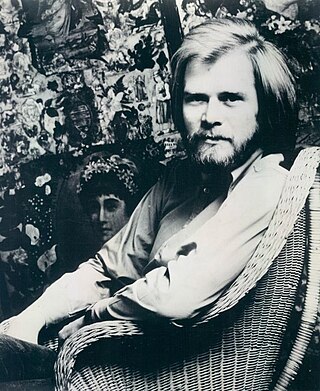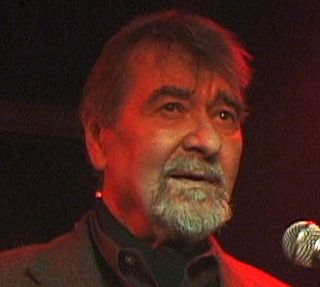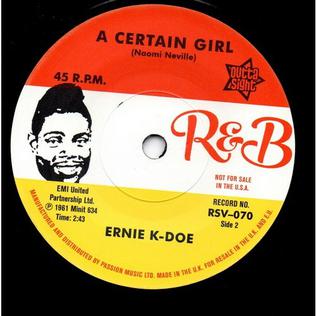
The Rolling Stones are an English rock band formed in London in 1962. Active for over six decades, they are one of the most popular and enduring bands of the rock era. In the early 1960s, the band pioneered the gritty, rhythmically driven sound that came to define hard rock. Their first stable line-up consisted of vocalist Mick Jagger, multi-instrumentalist Brian Jones, guitarist Keith Richards, bassist Bill Wyman, and drummer Charlie Watts. During their formative years, Jones was the primary leader: he assembled the band, named it, and drove their sound and image. After Andrew Loog Oldham became the group's manager in 1963, he encouraged them to write their own songs. Jagger and Richards became the primary creative force behind the band, alienating Jones, who had developed a drug addiction that interfered with his ability to contribute meaningfully.

Lewis Brian Hopkin Jones was an English multi-instrumentalist and singer, and the founder, rhythm/lead guitarist, and original leader of the Rolling Stones. Initially a guitarist, he went on to provide backing vocals and played a wide variety of instruments on Rolling Stones recordings and in concerts.

Eel Pie Island is an 8.935-acre (3.6 ha) island in the River Thames at Twickenham in the London Borough of Richmond upon Thames. It is on the maintained minimum head of water above the only lock on the Tideway and is accessible by boat or from the left bank by footbridge. The island had a club that was a major venue for jazz and blues in the 1960s.

Andrew Loog Oldham is an English record producer, talent manager, impresario and author. He was manager and producer of the Rolling Stones from 1963 to 1967, and was noted for his flamboyant style.

Ian Andrew Robert Stewart was a Scottish keyboardist and co-founder of the Rolling Stones. He was removed from the line-up in May 1963 at the request of manager Andrew Loog Oldham who felt he did not fit the band's image. He remained as road manager and pianist for over two decades until his death, and was posthumously inducted into the Rock and Roll Hall of Fame along with the rest of the band in 1989.

John William "Long John" Baldry was an English musician and actor. In the 1960s, he was one of the first British vocalists to sing the blues in clubs and shared the stage with many British musicians including the Rolling Stones and the Beatles. Before achieving stardom, Rod Stewart and Elton John were members of bands led by Baldry. He enjoyed pop success in 1967 when "Let the Heartaches Begin" reached No. 1 in the UK, and in Australia where his duet with Kathi McDonald "You've Lost That Lovin' Feelin'" reached No. 2 in 1980.

Five Live Yardbirds is the live debut album by English rock band the Yardbirds. It features the group's interpretations of ten American blues and rhythm and blues songs, including their most popular live number, Howlin' Wolf's "Smokestack Lightning". The album contains some of the earliest recordings with guitarist Eric Clapton.

Having a Rave Up with the Yardbirds, or simply Having a Rave Up, is the second American album by English rock group the Yardbirds. It was released in November 1965, eight months after Jeff Beck replaced Eric Clapton on guitar. It includes songs with both guitarists and reflects the group's blues rock roots and their early experimentations with psychedelic and hard rock. The title refers to the driving "rave up" arrangement the band used in several of their songs.

Georgie Fame is an English R&B and jazz musician. Fame, who had a string of 1960s hits, is still performing, often working with contemporaries such as Alan Price, Van Morrison and Bill Wyman. Fame is the only British music act to have achieved three UK No. #1 hits with his only top 10 chart entries: "Yeh, Yeh" in 1964, "Get Away" in 1966 and "The Ballad of Bonnie and Clyde" in 1967.

Michael Charles Avory is an English musician, best known as the longtime drummer and percussionist for the English rock band the Kinks. He joined them shortly after their formation in 1964 and remained with them until 1984, when he left amid creative friction with guitarist Dave Davies. He is the longest-serving member of the band, apart from the Davies brothers. He is also the most prolific member, again apart from the Davies brothers, who has played on twenty studio albums or nearly all of the band's creative output.
The Ricky-Tick was an influential 1960s rhythm & blues club in Windsor, Berkshire, England, host to many important acts such as The Rolling Stones, The Who, Jimi Hendrix, Pink Floyd and Cream. It was set up as an R&B venue after founders Philip Hayward and John Mansfield saw the success in early 1962 of the Ealing Club. At the close of the Ricky-Tick Philip Hayward went on to open Pantiles Club & Restaurant in Bagshot, Surrey.
Anthony "Top" Topham was an English musician and visual artist who was best known as a blues guitarist and also for being the first lead guitarist of The Yardbirds. Topham left the band before they achieved mainstream popularity and was replaced by Eric Clapton, the first of three lead guitarists from the Yardbirds to gain an international reputation.

Seven Ages of Rock is a BBC Two series, co-produced by BBC Worldwide and VH1 Classic in 2007 about the history of rock music.

Giorgio Sergio Alessando Gomelsky was a filmmaker, impresario, music manager, songwriter and record producer. He was born in Georgia, grew up in Switzerland, and later lived in the United Kingdom and the United States.

Sonny Boy Williamson & the Yardbirds is a live album by Chicago blues veteran Sonny Boy Williamson II backed by English rock band the Yardbirds. It was recorded at the Crawdaddy Club in Richmond, Surrey on December 8, 1963. However, the performances were not released until early 1966, after a string of Top 40 hits by the Yardbirds.

The Half Moon is a public house and music venue in Putney, London. It is one of the city's longest running live music venues, and has hosted live music every night since 1963.
British rhythm and blues was a musical movement that developed in the United Kingdom between the late 1950s and the early 1960s, and reached a peak in the mid-1960s. It overlapped with, but was distinct from, the broader British beat and more purist British blues scenes, attempting to emulate the music of American blues and rock and roll pioneers, such as Muddy Waters and Howlin' Wolf, Chuck Berry and Bo Diddley. It often placed greater emphasis on guitars and was often played with greater energy.

The Yardbirds are an English rock band, formed in London in 1963. The band's core lineup featured vocalist and harmonica player Keith Relf, drummer Jim McCarty, rhythm guitarist and later bassist Chris Dreja, and bassist/producer Paul Samwell-Smith. The band started the careers of three of rock's most famous guitarists: Eric Clapton, Jeff Beck and Jimmy Page, all of whom ranked in the top five of Rolling Stone magazine's list of 100 greatest guitarists. The band had a string of hits throughout the mid-1960s, including "For Your Love", "Heart Full of Soul", "Shapes of Things", and "Over Under Sideways Down".

"A Certain Girl" is a rhythm and blues song written by Allen Toussaint, with the credit listed under his pen name Naomi Neville. New Orleans R&B singer Ernie K-Doe recorded it in 1961. Minit Records released the song as the B-side of "I Cried My Last Tear".

Eric Easton (1927–1995) was an English record producer and the first manager of British rock group the Rolling Stones. Originally from Lancashire, he joined the music industry playing the organ in music halls and cinemas. By the 1960s he had moved into management and talent spotting, operating from an office suite in London's Regent Street. Easton met Andrew Loog Oldham in 1963; Oldham wanted to sign an unknown band, called the Rolling Stones, about whom he was enthusiastic. At the time, the band were still playing small clubs and blues bars. Easton saw them once—at the Crawdaddy Club in Richmond—and agreed with Oldham. Their partnership was one of contrasts: Oldham has been described as bringing youth and energy, while Easton brought industry experience, contacts and financing. Together, they signed the group to both a management and publishing deal, which, while giving better terms for the group than the Beatles received, was to the advantage of Easton and Oldham who received a larger cut. Easton was primarily responsible for booking gigs—he was keen for the group to get out of London and play nationally—but also acted as record producer on a number of occasions, including on their first single, a cover version of Chuck Berry's "Come On" in June 1963. Easton was responsible for many aspects of the band's development, ranging from managing their fan club to organising their tour of America in 1964.


















